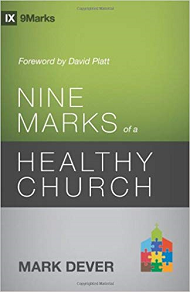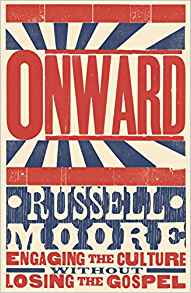
“Don’t show your underwear.” That’s what one pastor-professor said when I sat in on a preaching workshop during my seminary years. What did he mean? “Underwear” refers to the fine details of the text and the laborious process the preacher engaged in to understand them. He was concerned that preachers may distract people from the Big Idea if they reveal all of their hard work behind the scenes to study the passage.
He advised us to address the exegetical elements of the biblical text only when necessary. Preachers must do the digging for themselves to discover the passage’s Big Idea and then build the sermon rigorously around it. He confidently proposed that preachers should prepare the hearers for the Big Idea with a careful introduction, support it with 2-4 complementary points, and write a conclusion that repeats and applies it. This is likely the dominant approach employed by most seminary-educated preachers today.
Who Taught Preachers to Hide Their Underwear?
The Big Idea approach was stimulated by a book that still remains a primary preaching course text in many seminaries: Biblical Preaching by Haddon Robinson. [1] Robinson taught that every Bible passage contains essentially one main point—a Big Idea which every interpreter ought to discover and stress in the message. The preacher, Robinson insisted, should toil to construct a single succinct sentence that clearly and cleverly states this Big Idea. The preacher should then construct the entire sermon to support this sentence and use it to drive the hearers’ personal and community application of the passage. Robinson’s ideas sound logical, and they are not altogether wrong. However . . .
A Message That’s Musical
For years, I’ve sensed the Big Idea approach was lacking something, even though I have largely followed it and seen others do so through much of my life. I was delighted to read an article in the latest Journal of the Evangelical Theological Society titled, “Time to Kill the Big Idea? A Fresh Look at Preaching.” In this article, Abraham Kuruvilla says that the Big Idea approach is a wrongful “distilling” of the Bible text down to what appear to be its essential elements. [2] This distilling often robs the hearers of essential elements in the text and causes us to pass over nuances that give a passage its punch.
Wouldn’t such “distilling” reduce the impact God intended for any given passage of Scripture? Wouldn’t it “result in significant loss of textual meaning, emotion, power, and pathos?” [3] Over the course of time, wouldn’t this method leave the hearers malnourished at best and impoverished at worst?
To illustrate his concerns, Kuruvilla compares the Big Idea approach to stripping the notes out of a musical masterpiece. Music theorists have demonstrated that most notes in a song can be left out of a tune and it will remain recognizable. Kuruvilla analyzed “Over the Rainbow” with this technique and came up with a few measures like the following:

If only the circled notes above were played, one would distinguish the tune “Over the Rainbow.” The problem is, this technique reduces the masterpiece down to something that the songwriter never intended, even if it still sounds nice or recognizable. A true artist would likely feel insulted by such reduction! If people only ever heard the distilled rendition of “Over the Rainbow,” it probably would never have been well-liked or become the influential classic that it is. Kuruvilla views sermons in much the same way:
Sermons should be faithful to the full range of a text’s power, and those preachers who carry away only main ideas … are traveling too light. [4]
The Master Musician
The Bible was inspired by a Master Musician, so often there truly are multiple threads of meaning, purpose, and punch in a single passage of Scripture. Sometimes a series of passages function like an ensemble of instruments, each adding their tones and tinges to the thrust of a book or section of Scripture. Hearers will be better nourished if preachers give every “instrument” God placed within a text its place in forming the overall song.
What does this mean in practical terms for the preacher? First, none of this suggests that readers/hearers should read into the Bible what they wish to see. The motive is to appreciate the complexity that God built into his Word. That means preachers have to show their underwear—at least some of it! They shouldn’t hoard the nuances of the text for themselves and give the hearers a mere summary of extracted principles. They must expose the hearers to the masterpiece that moved them to deep knowledge and reflection during private study and preparation.
Recovering from the Big Idea Syndrome
The world is presently bombarded with mind-numbing technology and oversimplifications. Everything is being done in the name of simplicity, efficiency, and ease of success. Christians should strive to recover depth of thought and reflection. Few books other than the Bible can induce such intense reflection on self, society, and spiritual realities. We should abandon the Big Idea approach if it means following these misguided patterns of the modern world. Instead of “stripping out” the details of a passage in order to get quickly to what supposedly matters, we should insist that all of it matters and all of it is worthy of our time and undivided attention.
Following the flow of the passage and its sophisticated signals may distract some hearers, but we are dealing with more than just hearers. Christians, aren’t we handling the precious Word of God? If God intentionally and artfully shaped his message with specific linguistic features, shouldn’t we expose them for our hearers? This can be done in a way that captures the imagination and interest of the hearer. Preachers need to figure out how to do so.
Must We Abandon the Big Idea?
We should abandon the Big Idea approach if it prevents us from treating Scripture as the divine masterpiece that it is. But contrary to Kuruvilla’s insinuation, we need not kill the Big Idea altogether. Many passages do build up to a single, prevailing point that should receive emphasis. What stands out in Kuruvilla’s analysis is the danger of allowing the main idea to control every step of sermon preparation. Surely those of us who preach must do a better job of illuminating all the colors of God’s Word when we preach or teach.
The next article will examine a Bible story that generates strong feelings (and sometimes controversy) due to the tension between the Big Idea and the details in the passage. I will also “retweet” some of Kuruvilla’s most stimulating quotes from “Time to Kill the Big Idea?”
_________________________________________
[1] Haddon W. Robinson, Biblical Preaching (Grand Rapids, MI: Baker Academic, 1980).
[2] Abraham Kuruvilla, “Time to Kill the Big Idea? A Fresh Look at Preaching,” JETS 61, no. 4 (2019): 825-46. Kuruvilla begins his article by developing the history of the Big Idea. His research reveals a surprising list of notable Christian preachers and authors who subscribe to the Big Idea approach (825-828).
[3] Kuruvilla, 841.
[4] Kuruvilla, 836, quoting Thomas G. Long, The Witness of Preaching, 3rd ed. (Louisville, KY: Westminster John Knox, 2016) 116.



